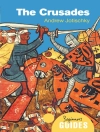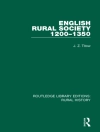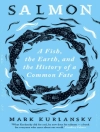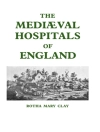The last 500 years in southern Africa represent a strikingly unexplored and misrepresented period which remains disfigured by colonial/apartheid assumptions, most notably in the way that African societies are depicted as fixed, passive, isolated, un-enterprising and unenlightened. This period is one the most formative in relation to southern Africa’s past while remaining, in many ways, the least known. Key cultural contours of the sub-continent took shape, while in a jagged and uneven fashion some of the features of modern identities emerged. Enormous internal economic innovation and political experimentation was taking place at the same time as expanding European mercantile forces started to press upon southern African shores and its hinterlands. This suggests that interaction, flux and mixing were a strong feature of the period, rather than the homogeneity and fixity proposed in standard historical and archaeological writings. Five Hundred Years Rediscovered represents the first step, taken by a group of archaeologists and historians, to collectively reframe, revitalise and re-examine the last 500 years. By integrating research and developing trans-frontier research networks, the group hopes to challenge thinking about the region’s expanding internal and colonial frontiers, and to broaden current perceptions about southern Africa’s colonial past
Inhaltsverzeichnis
Preface
1 Introduction
Section 1 Disciplinary Identities: Methodological Considerations
2 Historical archaeologies of southern Africa: precedents and prospects
J. Behrens and N. Swanepoel
3 South Africa in Africa more than five hundred years ago: some questions
N. Parsons
4 Towards an outline of the oral geography, historical identity and political economy of the Late Precolonial Tswana in the Rustenburg region
S. Hall, M. Anderson, J. Boeyens and F. Coetzee
5 Metals beyond frontiers: exploring the production, distribution and use of metals in the Free State grasslands, South Africa
S. Chirikure, S. Hall and T. Maggs
6 de Tuin, a 19th-century mission station in the Northern Cape
A.G. Morris
7 Reinterpreting the origins of Dzata: archaeology and legends
E. Hanisch
Section 2 Material Identities
8 Revisiting Bokoni: populating the stone ruins of the Mpumalanga Escarpment
P. Delius and M.H. Schoeman
9 The Mpumalanga Escarpment settlements: some answers, many questions
T. Maggs
10 Post-European contact glass beads from the southern African interior: a tentative look at trade, consumption and identities
M. Wood
11 Ceramic alliances: pottery and the history of the Kekana Ndebele in the old Transvaal
A.B. Esterhuysen
Section 3 ‘Troubled Times’: Warfare, State Formation and Migration in the Interior
12 Rediscovering the Ndwandwe kingdom
J. Wright
13 Swazi oral tradition and Northern Nguni historical archaeology
P. Bonner
14 Mfecane mutation in Central Africa: a comparison of the Makololo and the Ngoni in Zambia, 1830s-1898
A. Kanduza
List of contributors
Index
Über den Autor
Peter Delius is Professor of History at the University of Witwatersrand, Johannesburg.












